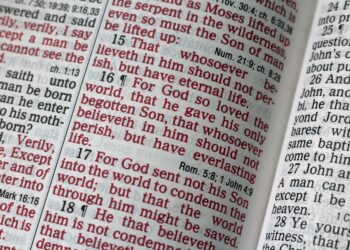The belief in the divine, the supernatural or the spiritual is perhaps the cornerstone of all religions around the world. Across different religions, the concept of divinity takes on different forms, with diverse beliefs on the nature, attributes and characteristics of the divine.
In Hinduism, for instance, there are a plethora of deities, and the concept of divinity is intrinsically embedded in the idea of karma, or the law of cause and effect. Hindus believe that the divine is inherent in all forms of life, and that every action, good or bad, carries consequences in the next life. The ultimate goal in Hinduism is to attain Moksha or release from the cycle of rebirth, a state of spiritual liberation attained through self-realization and union with the divine.
Islam, on the other hand, believes in the concept of monotheism, with one God, known in Arabic as Allah. Muslims view Allah as the creator of the universe, all-powerful, all-knowing, and merciful. While Muslims believe that Allah is beyond human comprehension, they also believe that God communicates with mankind through the prophets, with the last prophet being Prophet Muhammed. Islam also believes in the concept of life after death, where the souls of humans will be judged based on their deeds on earth.
In Christianity, the concept of divinity centers on the belief in the Holy Trinity, consisting of God the Father, God the Son (Jesus Christ), and God the Holy Spirit. Christians hold the belief that God created the world and all its inhabitants, and that He has a divine plan for all humanity. Christians believe that through belief in Jesus Christ and following His teachings, humans can attain salvation and eternal life in heaven. Christianity also has a strong emphasis on the concept of sin and forgiveness, and the belief that God’s love and mercy is infinite.
Buddhism, on the other hand, has a more philosophical approach to the concept of divinity. While Buddhism does not necessarily hold a belief in a creator God, it does believe in the concept of a divine nature within all beings, referred to as Buddha-nature. Buddhists hold the belief that individuals have the potential to attain enlightenment, a state of spiritual awakening characterized by the total cessation of attachment and suffering. Buddhists believe that enlightenment can be achieved through meditation, ethical conduct, and the cultivation of wisdom.
The concept of divinity is also present in the indigenous beliefs of many cultures around the world. For instance, among Native American tribes, the concept of divinity is multifaceted, with various deities associated with different elements of nature. These deities are believed to protect and guide the people, with offerings and rituals performed to gain their favor. Similarly, African traditional religions hold a belief in a creator God, often referred to as Olodumare or Nzambi, alongside the worship of ancestors and deities.
In conclusion, the concept of divinity is a fundamental aspect of all religions around the world. While the nature and attributes of the divine may differ across different faiths, the belief in a higher power or spiritual realm serves as a source of guidance, comfort, and inspiration for many. The belief in the divine also offers a sense of connectedness and unity among believers, transcending cultural and geographical boundaries.













